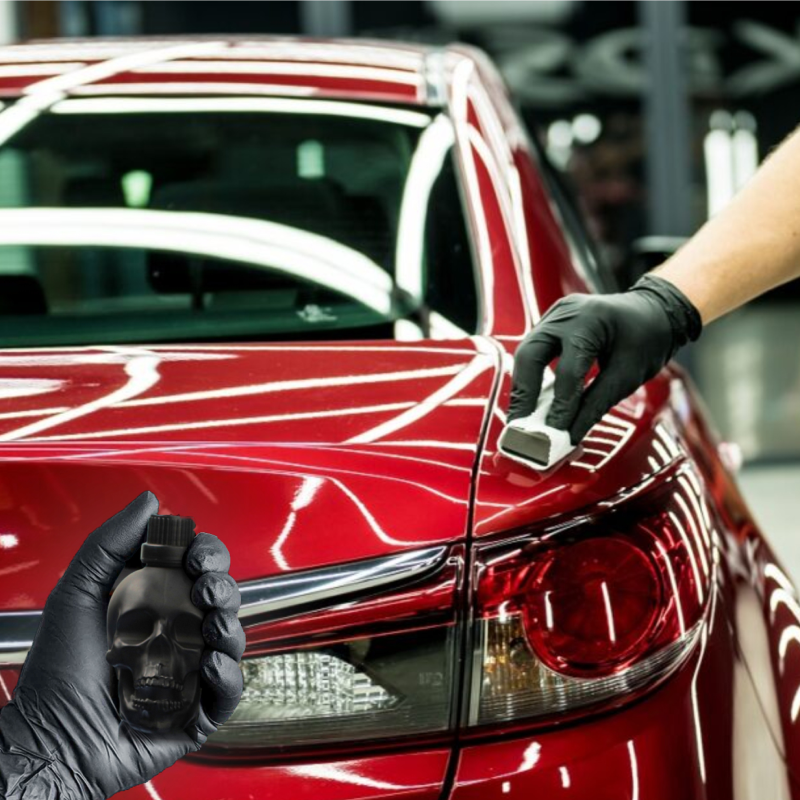Choose professional car detailing to protect your vehicle’s appearance.
Choose professional car detailing to protect your vehicle’s appearance.
Blog Article
A Comprehensive Guide to the Sorts Of Ceramic Layer on the marketplace
Ceramic coatings have actually emerged as a crucial solution across different industries due to their special residential or commercial properties and applications. As we check out the distinct features and applications of these coatings, the effects for efficiency and durability come to be significantly obvious, increasing concerns concerning which kind could ideal suit your demands.
Recognizing Ceramic Coatings
Ceramic finishes are sophisticated protective services that have obtained appeal in various markets, especially in auto and aerospace applications. These coatings include a liquid polymer that, when cured, creates a resilient, hydrophobic layer on the surface of the substratum. This layer provides enhanced resistance to environmental pollutants, UV radiation, and chemical direct exposure, thereby expanding the life and aesthetic allure of the underlying material.
The fundamental component of ceramic finishes is silica, which adds to their hardness and resilience. The application process usually involves surface area preparation, application of the finish, and curing, which can be accomplished with heat or UV light. When healed, ceramic coverings exhibit exceptional bonding properties, enabling them to adhere highly to a selection of surface areas, consisting of steels, plastics, and glass.
In addition to their safety functions, ceramic coverings likewise supply ease of upkeep. Their hydrophobic nature minimizes the adherence of dirt and gunk, making cleansing easier and less regular. Overall, the adoption of ceramic coverings stands for a considerable advancement in surface area security innovation, providing both practical and visual benefits throughout multiple fields.
Types of Ceramic Coatings
Various sorts of ceramic finishings are available, each created to meet certain performance requirements and applications - Car Detailing. One of the most common types include:
Silica-based Coatings: These finishings primarily consist of silicon dioxide and are known for their sturdiness and chemical resistance. They are commonly made use of in automotive and industrial applications.
Titanium Dioxide Coatings: Popular for their photocatalytic residential or commercial properties, titanium dioxide finishes are typically used in environments where self-cleaning and antifungal homes are desirable, such as in building materials and automotive finishes.
Zirconia Coatings: Identified by their high-temperature security and thermal resistance, zirconia layers are made use of in applications such as turbine engines and high-performance automobile elements.
Alumina Coatings: Exhibiting excellent firmness and thermal stability, alumina finishings are often made use of in wear-resistant applications, including reducing devices and commercial equipment. - Car Detailing
Hybrid Coatings: Combining the residential properties of numerous materials, crossbreed finishes provide enhanced performance characteristics, making them appropriate for unique and requiring applications.
Each sort of ceramic covering serves distinct objectives, enabling customers to choose the most ideal service based on specific ecological conditions and efficiency needs.
Benefits of Ceramic Coatings
Coatings play a critical role in enhancing the efficiency and durability of surface areas throughout various industries. Ceramic layers, specifically, deal various benefits that make them progressively popular among producers and customers alike. Among the primary benefits is their remarkable sturdiness. These layers are resistant to scratches, chemicals, and UV rays, ensuring that the underlying surface area remains safeguarded over time.
In addition to longevity, ceramic coverings supply outstanding hydrophobic homes, enabling very easy cleansing and maintenance. This water-repellent nature decreases the adherence of dirt, grime, and other pollutants, which can extend the aesthetic allure and capability of the surface area. Furthermore, ceramic finishes can considerably boost thermal resistance, making them optimal for applications that withstand high temperature levels.

Application Process
When using ceramic coatings, a meticulous method is crucial to attain optimal results. The application procedure commonly starts More Info with detailed surface area preparation. see this This includes washing, sanitizing, and brightening the surface area to eliminate all impurities, consisting of dirt, oil, and prior waxes or sealers. A clean surface area guarantees correct adhesion of the coating.
When the surface is prepped, the following step is to apply the ceramic coating. This can be done making use of an applicator pad or a microfiber cloth, guaranteeing also coverage. It is essential to function in little sections to preserve control and avoid early curing. The covering must be used in slim layers, as thicker applications can lead to unequal coatings.
After application, the layer requires a details treating time, typically ranging from a couple of hours to a complete day, relying on the product. Throughout this time, it is important to prevent exposure to wetness or pollutants. Finally, a gentle buffing may be required after treating to boost the gloss and get rid of any high areas. Following these steps vigilantly will make the most of the performance and long life of the ceramic covering, giving a durable protective layer for the surface area.
Maintenance and Long Life
To make certain the long life and effectiveness of a ceramic layer, regular maintenance is important. Ceramic coatings, known for their durability and protective high qualities, require details treatment routines to optimize their life expectancy and performance.
Along with regular cleaning, periodic inspections are important. Search for signs of wear or damage, such as hydrophobic residential properties lessening or surface area flaws. If required, a light gloss may be related to invigorate the finish without stripping it away.
Additionally, the application of a booster spray can boost the finish's hydrophobic impacts and restore its gloss. This is especially valuable for coatings that have remained in usage for an extended period. Inevitably, by adhering to these upkeep practices, one can significantly extend the life of a ceramic finish, ensuring that it proceeds to provide optimal security against environmental aspects and maintain the visual allure of the lorry.
Conclusion

Report this page